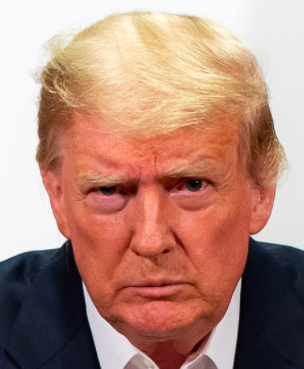The Strategy of Weakening Civil Society in Authoritarian Regimes
To solidify their control, authoritarian figures must dismantle or co-opt civil society—the foundational spheres through which individuals create social connections independent of governmental influence. In recent years, we have seen this pattern emerge in various forms, exemplified by former President Donald Trump’s strategic attacks on universities, the press, and non-governmental organizations.
The Role of Businesses in Civil Society
Businesses, both large and small, represent a significant subset of civil society. The concentration of local, national, and international power within corporations makes them attractive targets for authoritarian regimes. Notably, some businesses may even favor elements of authoritarianism, particularly when promises include leniency towards corporate misconduct. Trump’s approach has illustrated how easily businesses can be co-opted into supporting such regimes, often under the guise of government assistance or financial incentives.
Co-opting the Business Sector
Trump’s strategy involved offering thinly-veiled bribes to businesses in exchange for favorable governmental treatment. This included closing investigations into illegal practices, approving mergers, or granting extensive government contracts. Such corrupt arrangements lock businesses into a dependency on promoting authoritarian interests rather than competing fairly in the market. Consequently, those that align with Trump’s corrupt quid pro quo often find it challenging to extricate themselves from this compromising position.
The Media’s Complicity
This dynamics extends to media corporations as well. While some outlets like ABC continue to uphold journalistic integrity, many are aware that Trump can exert coercive pressure on them if future reporting questions his actions. The situation at CBS indicates a willingness to sacrifice journalistic independence in anticipation of favorable dealings with Trump, while the Washington Post faces existential concerns under Jeff Bezos’ alignment with the former president.
A Spectrum of Corporate Responses
The resistance to Trump’s influence is manifested in a spectrum of corporate responses. Some high-profile companies are actively seeking law firms that resist Trump’s tactics. Corporations like Oracle and Morgan Stanley have made moves to divert business away from firms willing to capitulate to Trump’s administration, demonstrating a desire for robust legal representation that prioritizes integrity over compliance.
Law Firms and the Pressure to Conform
A striking narrative shift is emerging among law firms that opted for appeasement. Firms like Cadwalader & Wickersham successfully negotiated deals with the Trump administration, but not without internal conflicts. Partners have expressed emotional turmoil over these decisions, driven by a sense of duty to clients and the firm. Conversely, firms that stood firm against Trump have garnered business from corporations that prioritize strong legal advocacy and ethical representation.
Legal Implications and Future Prospects
Despite facing backlash, Trump remains committed to leveraging executive orders to maintain control over the legal industry. However, recent developments in the courts reflect growing pushback against these efforts. Judges have indicated that targeting law firms under the guise of national security may very well constitute coercive tactics rather than legitimate governance. This ongoing scrutiny is paving the way for companies to rethink their alliances and to prioritize ethical practices over complacency.
A Path Forward for Civil Society
Ultimately, the ongoing struggle against authoritarianism underscores the need for businesses and legal entities to support civil society robustly. By aligning with firms that stand firm against coercive politics, companies can champion an environment conducive to democracy and integrity. In this evolving landscape, the value of legal representation willing to resist power plays by authoritative figures remains crucial.
